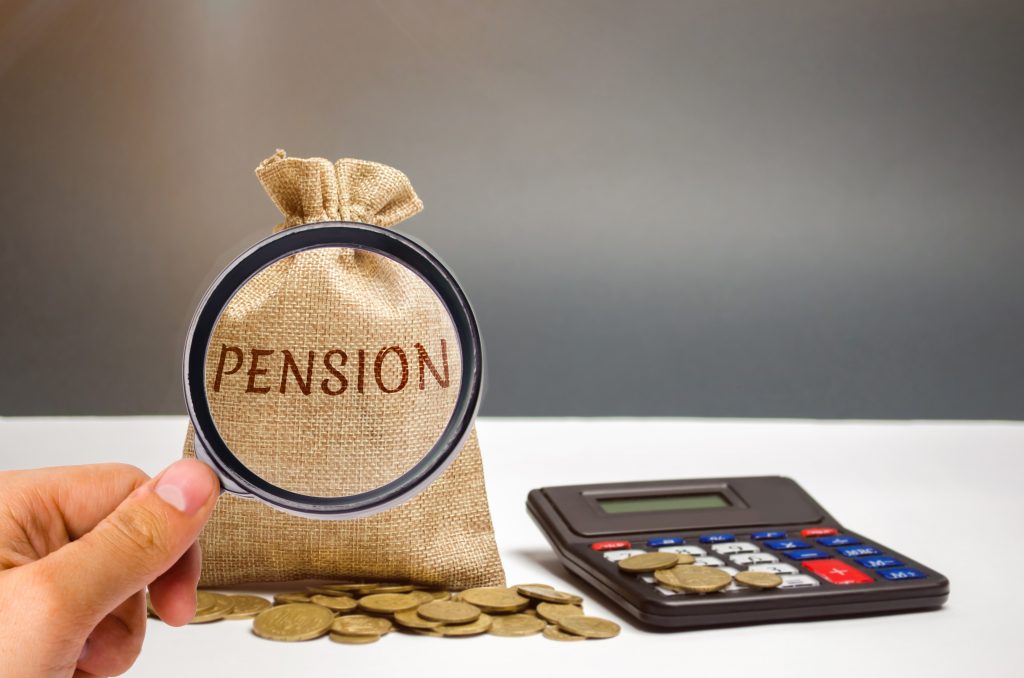 Even as Connecticut continues to implement public health measures to "flatten the Covid-19 curve" and to safeguard private sector jobs, it is by no means premature to give attention to strengthening programs for economic recovery and family income security in the post-virus period.
Even as Connecticut continues to implement public health measures to "flatten the Covid-19 curve" and to safeguard private sector jobs, it is by no means premature to give attention to strengthening programs for economic recovery and family income security in the post-virus period.
One of the key problems of economic inequality in the United States is that many hard-working Americans retire with little or no financial savings other than Social Security and therefore are often unable to meet their minimum household needs.
According to data cited by The Economist, as much as 40 percent of working age Americans have no retirement-account savings, causing America's rate of old-age poverty to be among the highest in the developed world. Reviewing economic trends for the past decade, The New York Times, citing Federal Reserve data, reported that "retirement wealth has accumulated almost exclusively among higher-income households, while middle- and lower-income households have only held steady or lost ground."
The daunting prospects of exploding unemployment and recession caused by the virus will only compound this dire situation.
An important public policy goal for the post-virus recovery program should be the effective implementation of a workplace-based retirement option for the hundreds of thousands of Connecticut workers employed by small businesses that do not offer any retirement plan to their employees. There were an estimated 600,000 such workers in Connecticut prior to the current health calamity. It is not unreasonable to expect that number will grow substantially in the coming months as surviving small businesses attempt to shed costs and new start-ups use more austere business plans.
Although the financial services industry could have established comprehensive small business options, the private market did not do so. As a result, several states adopted a "public option" pension enabling employees of small businesses to join payroll-deduction retirement savings plans that create traditional IRA and/or Roth IRA investments for employees that are managed by public agencies acting as trustees of the funds.
Oregon launched the OregonSaves program in 2017 for its 800,000 private-sector workers with no workplace-based retirement savings plan. California's CalSavers opened in 2019, and Illinois and Maryland have established similar programs.
Connecticut took an important first step when it established the Connecticut Retirement Security Program in 2016, a pension program for private-sector employees. A small business with five or more employees that does not offer its own retirement plan will enroll its employees in the program unless they voluntarily "opt out" and choose not to participate. The program's payroll deduction plan deposits the employee's funds in a Roth IRA plan with no financial participation by the employer and the funds are invested by a professional financial services firm.
Unfortunately, the program and the quasi-independent Authority [CRSA] set up to manage it, were plagued with problems from the start, but the prospects for a reset seem more favorable now than in the recent past, for the following reasons:
First, the threat of opponents of state programs deploying the federal Employee Retirement Income Security Act (ERISA) to preempt the state option has been greatly diminished by the March decision of the U.S. District Court for the Eastern District of California. The court dismissed for the second time the federal preemption claim brought by the conservative Howard Jarvis Taxpayers Association, on the grounds that "CalSavers is neither an employee benefit plan nor does it relate to an ERISA plan." Opponents of the Connecticut program had cited the Jarvis case as a reason to shut it down because it is a close cousin of CalSavers.
Second, Gov. Ned Lamont, in his February 2020 budget, called for several administrative and budgetary reforms to revive the retirement project. The governor proposed that the CRSA would be transferred to state Comptroller Kevin Lembo's office, that Lembo would be appointed chairman of the authority, and that a small amount of appropriated funds would be made available for administrative and personnel costs. The concept of Connecticut joining an already-established program in Oregon or elsewhere has also been suggested.
"This is sort of a restart. It will give people the opportunity, at a much lower cost, to give people the retirement security they deserve," Lamont was quoted as saying last month in a welcome expression of support.
Third, the goal of increasing post-employment savings was given a federal boost in December when Congress passed "The Setting Every Community Up for Retirement Enhancement Act of 2019" [the "SECURE Act"] that reformed federal treatment of pension tools. Most important are the provisions that make it easier for small businesses to join together through Chambers of Commerce and trade associations to offer retirement plans to their employees and tax credits to firms that establish automatic enrollment programs for their employees.
If these reforms are successful, the current unmet need for employment-based retirement options will be reduced and the state-based IRA plans of Connecticut and other states will be able to mobilize their resources more efficiently to enroll employees who are still not covered.
Acknowledging that these are just the highlights of a still-evolving complex public undertaking, we endorse the goal of "resetting" the CRSA and urge support for the reform efforts. Addressing better the post-retirement financial needs of families is an essential component of Connecticut's future economic vitality.
READ MORE:
© 2025 ALM Global, LLC, All Rights Reserved. Request academic re-use from www.copyright.com. All other uses, submit a request to [email protected]. For more information visit Asset & Logo Licensing.







